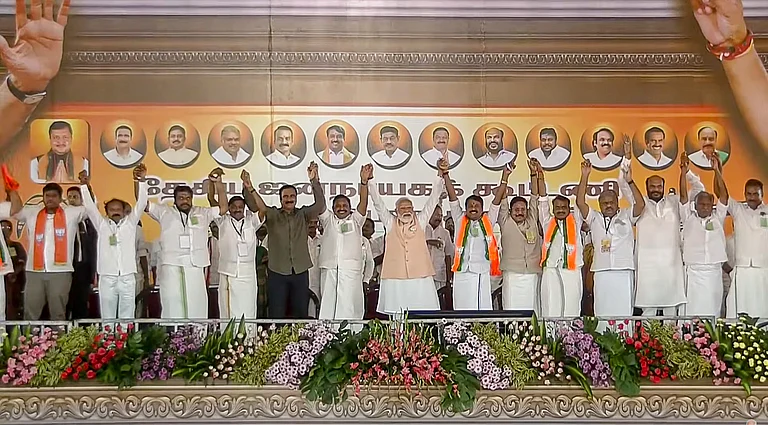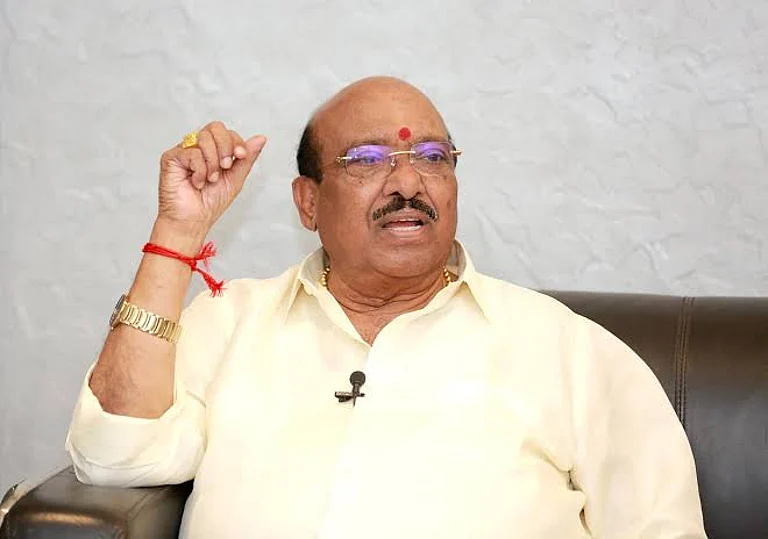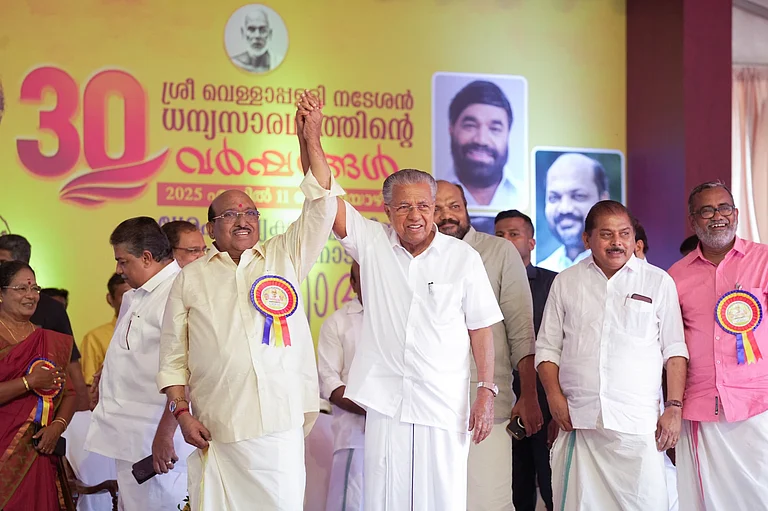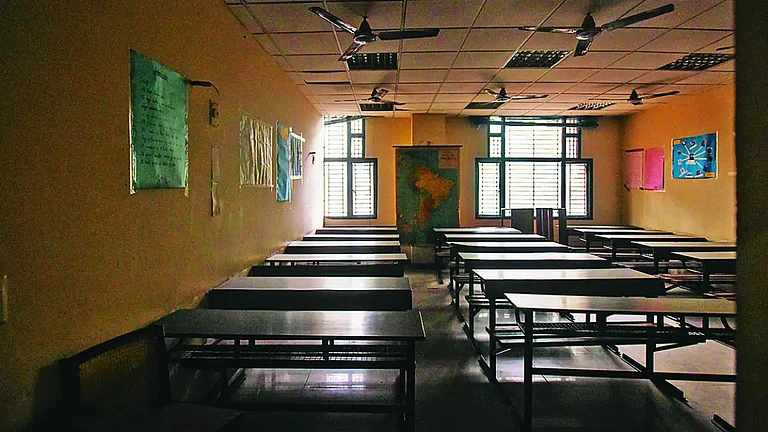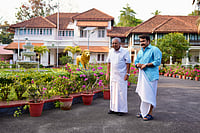From 'padapooja’— school students washing the feet of their teachers—to the opposition to the revised school schedule, Kerala's general education sector is witnessing spirited attempts by religious groups to push their agenda into the classrooms. Several reports of children being forced to wash the feet of their teachers on Guru Purnima day have surfaced from many districts, forcing the government to seek an explanation from the school authorities.
Meanwhile, religious groups upped the ante against rescheduled class timings, claiming that it would affect the religious education offered through madrasas. The government’s decision to introduce the Zumba dance programme in schools from this academic year to promote students’ physical and mental health was also severely opposed by some religious groups.
The Kerala State Commission for the Protection of Child Rights registered a case suo motu in connection with the 'guru pada pooja' ritual held at various schools. Kerala General Education Minister V. Shivankutty has said that the state government has the right to take action against schools, regardless of their syllabi, that do not comply with the Right to Education.
“Education is meant to foster and promote scientific thinking in students. Rituals like 'guru pada pooja' undermine this goal. Practices that instil a servile mentality in students cannot be accepted,” he said.
In various schools run by Bharitiya Vidya Niketan, students were forced to wash the feet of teachers, euphemistically called 'guru pada pooja'. They were allegedly made to kneel before the teachers and wash their feet with milk and rose water. Then vermilion and sandalwood were applied, and flowers were offered.
The school authorities, when contacted, defended their actions, saying that the poojas are standard practices in schools run by Bharatiya Vidya Niketan. According to them, these rituals are undertaken to instil what they call ‘Indian values’ in students.
According to the Bharatiya Vidya Niketan website, “they are committed to the ideology of Bharat. The ideology is known as Hindutva. It is our vision that every human in this land is committed to Hindutva”
Major student unions, barring the ABVP, united in their condemnation of the 'pada pooja', terming it as an attempt to bring back the values of the caste system. But Governor Rajendra Arlekar praised and defended the schools for practising 'pada pooja'.
He said offering flowers at the feet of the teachers is part of Indian culture and questioned the critics, telling them that he doesn’t understand which culture they come from.
The Kerala government and the Governor have been at loggerheads ever since he placed a picture of what he claims to be that of ‘Bharatamba’ for official programmes at Raj Bhavan. The suspension of the Registrar of Kerala University, K.S. Anil Kumar, in an issue related to the placement of the saffron flag bearing the image of Bharat Mata, has strained the relationship further.
Kerala University Vice Chancellor Mohan Kunnummal suspended the Registrar at the Governor's instance, who is also the university's Chancellor. The suspension and resistance put up by the students' union and the employees belonging to the Left union have thrown the university administration into complete disarray.
The Governor’s attempt, as Chancellor, to interfere in policy issues, disregarding the government’s opinion, has created troubles in the higher education sector for long. The Left government sees the Governor’s move as an attempt to saffronise higher education in the state.
When the government is trying to resist what it calls a saffronisation attempt by the Governor and some school managements, the stand of the Muslim organisations against rescheduling the school timings has generated controversy. The decision to extend the school timings by 15 minutes in the morning and in the evening, except on Fridays, has been criticised by Muslim religious organisations and the Indian Union Muslim League.
Muslim organisations allege that the new timings will interfere with religious education. “We are not adamant against making changes in the school timings. But the government’s unilateral decision without consulting the stakeholders is unacceptable," says P.K. Navas, State President of the Muslim Student Federation, the student wing of the Indian Union Muslim League.
The education department has defended the decision, pointing out that the extension of the timings follows the High Court’s direction, ensuring 220 instructional days and 1100 teaching hours annually.
When pressure mounted, the government agreed to discuss the issue with religious groups.
Educationalists argue that these attempts, both by the Hindu religious groups and the Muslim organisations, will undermine the prevailing secular ecosystem. Prof. AM Shinas, writer and social commentator, says that the school management, which forced students to wash the feet of the teachers, and the Muslim groups, who attempt to scuttle the government’s decision to reschedule the school timings, are signs of regressive elements gaining influence in the state.
“If they want to impart religious education, they have to adjust it to the school timings. If the government bows down to the diktats of the religious groups, it will have far-reaching consequences for the social fabric of the state,” he says.
Caste and religious groups have played a significant role in Kerala’s educational sector by establishing and managing schools and colleges. Historically, they have played a pivotal role in shaping the academic landscape of the state by influencing access and opportunities for various social groups. But of late, their influence has grown to such an extent that it is forcing the government to tread cautiously in reforming the education sector, especially in matters related to religion.






